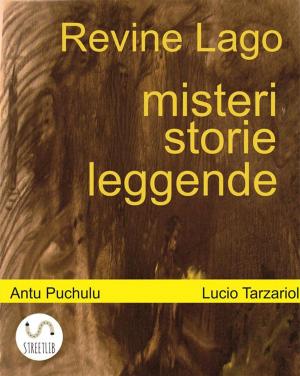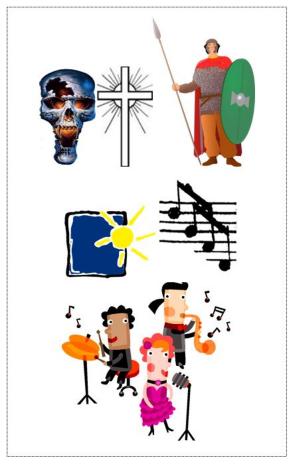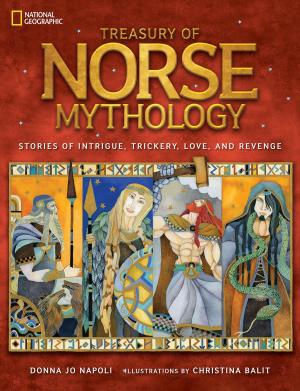Barbarian Rites
The Spiritual World of the Vikings and the Germanic Tribes
Nonfiction, Social & Cultural Studies, Social Science, Folklore & Mythology| Author: | Hans-Peter Hasenfratz, Ph.D. | ISBN: | 9781620554487 |
| Publisher: | Inner Traditions/Bear & Company | Publication: | June 23, 2011 |
| Imprint: | Inner Traditions | Language: | English |
| Author: | Hans-Peter Hasenfratz, Ph.D. |
| ISBN: | 9781620554487 |
| Publisher: | Inner Traditions/Bear & Company |
| Publication: | June 23, 2011 |
| Imprint: | Inner Traditions |
| Language: | English |
Discover the untamed paganism of the Vikings and the Germanic tribes prior to the complete Christianization of Europe
• Explores the different forms of magic practiced by these tribes, including runic magic, necromancy (death magic), soul-travel, and shape-shifting
• Examines their rites of passage and initiation rituals and their most important gods, such as Odin, Loki, and Thor
• Looks at barbarian magic in historical accounts, church and assembly records, and mythology as well as an eyewitness report from a 10th-century Muslim diplomat
• Reveals the use and abuse of this tradition’s myths and magic by the Nazis
Before the conversion of Europe to Christianity in the Middle Ages, Germanic tribes roamed the continent, plundering villages and waging battles to seek the favor of Odin, their god of war, ecstasy, and magic. Centuries later, predatory Viking raiders from Scandinavia carried on similar traditions. These wild “barbarians” had a system of social classes and familial clans with complex spiritual customs, from rites of passage for birth, death, and adulthood to black magic practices and shamanic ecstatic states, such as the infamous “berserker’s rage.”
Chronicling the original pagan tradition of free and wild Europe--and the use and abuse of its myths and magic by the Nazis--Hans-Peter Hasenfratz offers a concise history of the Germanic tribes of Europe and their spiritual, magical, and occult beliefs. Looking at historical accounts, church and assembly records, mythology, and folktales from Germany, Russia, Scandinavia, and Iceland as well as an eyewitness report of Viking customs and rituals from a 10th-century Muslim diplomat, Hasenfratz explores the different forms of magic--including charms, runic magic, necromancy, love magic, soul-travel, and shamanic shape-shifting--practiced by the Teutonic tribes and examines their interactions with and eventual adaptation to Christianity. Providing in-depth information on their social class and clan structure, rites of passage, and their most important gods and goddesses, such as Odin, Loki, Thor, and Freyja, Hasenfratz reveals how it is only through understanding our magical barbarian roots that we can see the remnants of their language, culture, and dynamic spirit that have carried through to modern times.
Discover the untamed paganism of the Vikings and the Germanic tribes prior to the complete Christianization of Europe
• Explores the different forms of magic practiced by these tribes, including runic magic, necromancy (death magic), soul-travel, and shape-shifting
• Examines their rites of passage and initiation rituals and their most important gods, such as Odin, Loki, and Thor
• Looks at barbarian magic in historical accounts, church and assembly records, and mythology as well as an eyewitness report from a 10th-century Muslim diplomat
• Reveals the use and abuse of this tradition’s myths and magic by the Nazis
Before the conversion of Europe to Christianity in the Middle Ages, Germanic tribes roamed the continent, plundering villages and waging battles to seek the favor of Odin, their god of war, ecstasy, and magic. Centuries later, predatory Viking raiders from Scandinavia carried on similar traditions. These wild “barbarians” had a system of social classes and familial clans with complex spiritual customs, from rites of passage for birth, death, and adulthood to black magic practices and shamanic ecstatic states, such as the infamous “berserker’s rage.”
Chronicling the original pagan tradition of free and wild Europe--and the use and abuse of its myths and magic by the Nazis--Hans-Peter Hasenfratz offers a concise history of the Germanic tribes of Europe and their spiritual, magical, and occult beliefs. Looking at historical accounts, church and assembly records, mythology, and folktales from Germany, Russia, Scandinavia, and Iceland as well as an eyewitness report of Viking customs and rituals from a 10th-century Muslim diplomat, Hasenfratz explores the different forms of magic--including charms, runic magic, necromancy, love magic, soul-travel, and shamanic shape-shifting--practiced by the Teutonic tribes and examines their interactions with and eventual adaptation to Christianity. Providing in-depth information on their social class and clan structure, rites of passage, and their most important gods and goddesses, such as Odin, Loki, Thor, and Freyja, Hasenfratz reveals how it is only through understanding our magical barbarian roots that we can see the remnants of their language, culture, and dynamic spirit that have carried through to modern times.















